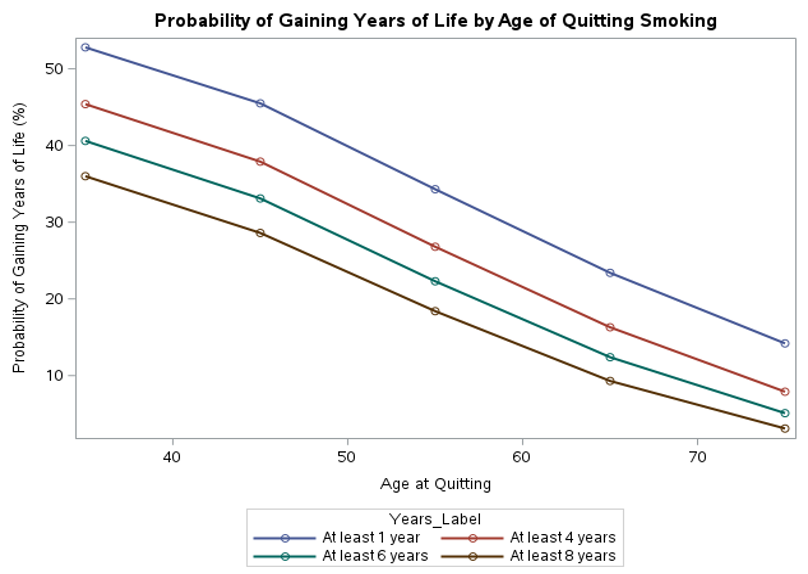The Benefits of Quitting Smoking at Different Ages
Research shows that quitting smoking adds years to your life, no matter when you stop. But the earlier you quit, the greater the reward.

Read Time: 2 minutes
Published:
You’ve seen the deadly warnings, grim statistics, and graphic ads. For decades, public health campaigns like “Truth” and “Tips from Former Smokers” have hammered home one message: smoking kills. But new research is reframing the conversation on the power of quitting, rather than the dangers of smoking. Even lifelong smokers can gain meaningful years back. Quitting at any age, including 65 or even 75, can extend life expectancy and improve quality of life.
Thuy Le and team used national health surveys, census data, and mortality rates to model life expectancy by smoking status. They compared people who never smoked, currently smoke, or quit between the ages of 35 and 75. Using simulations of 10 million individuals, they estimated average years gained and the likelihood of benefit at each age.
The study found that quitting smoking adds years to your life, no matter when you do it. People who quit at 35 gain back about 8 years of life expectancy, while quitting even at 75 adds nearly a year. For those in between, the benefit is still significant: quitting in your 40s or 50s can restore 3 to 6 years. Meanwhile, continuing to smoke cuts life short by about 9 years if you start at 35 and never quit. The earlier you stop, the greater the reward, and it’s never too late to make a difference.

About 12.5% of U.S. adults smoke, with rates higher among men and those with lower incomes. But there’s hope: nearly 60% of adults who have ever smoked have successfully quit—proof that stopping is possible
These results challenge the belief that quitting later in life offers little value. No matter your age, quitting smoking remains one of the most powerful steps you can take to protect your health and extend your life.



